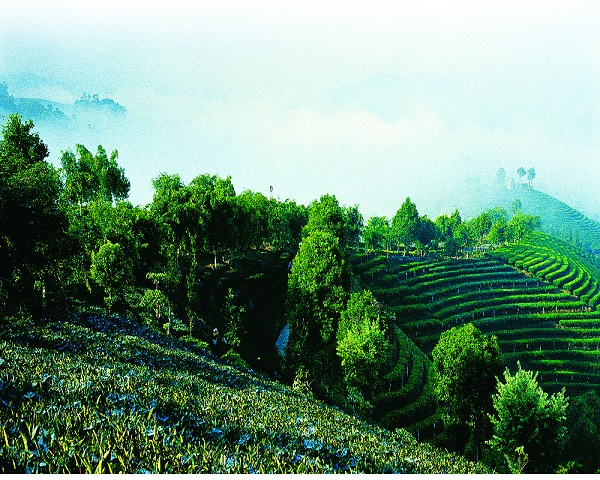
Green Food in Yunnan
"Green Food in Yunnan" refers to the region's emphasis on sustainable agriculture, organic farming practices, and a diverse culinary culture that prioritizes fresh, locally sourced ingredients, including:
Organic Farming: Yunnan is a hub for organic farming, with many farmers adopting natural and sustainable methods of cultivation. This includes avoiding synthetic pesticides and fertilizers, using compost and organic matter for soil enrichment, and practicing crop rotation to maintain soil health.
Locally Sourced Ingredients: The cuisine of Yunnan heavily relies on locally sourced ingredients, including fresh fruits, vegetables, herbs, and spices. Farmers markets, roadside stands, and organic food cooperatives offer a wide range of seasonal produce that forms the basis of Yunnan's green food culture.
Diverse Flavors: Yunnan's culinary landscape is characterized by a fusion of flavors from various ethnic groups and geographical regions. Dishes feature a harmonious blend of sweet, sour, spicy, and savory tastes, showcasing the diversity of ingredients and cooking techniques.
Herbal and Medicinal Foods: Yunnan is known for its use of herbal and medicinal ingredients in cooking. Many dishes incorporate herbs like mint, cilantro, and lemongrass, believed to have health benefits and add aromatic flavors to the cuisine.
Wild Foraged Foods: The province's rich biodiversity allows for the inclusion of wild foraged foods in Yunnan's green food repertoire. Mushrooms, bamboo shoots, ferns, and edible flowers are commonly used in dishes, adding a unique and seasonal element to the cuisine.
Tea Culture: Yunnan is renowned for its tea culture, particularly Pu'er tea, a fermented tea with earthy flavors and reputed health benefits. Tea plantations in Yunnan practice sustainable farming methods, contributing to the region's green food ethos.
Farm-to-Table Dining: Many restaurants in Yunnan follow a farm-to-table approach, sourcing ingredients directly from local farmers and producers. This ensures freshness, supports local economies, and promotes environmental sustainability by reducing food miles and carbon footprint.
Vegetarian and Vegan Options: Yunnan's cuisine offers a wide array of vegetarian and vegan options, with dishes showcasing the natural flavors and textures of plant-based ingredients. Tofu, tempeh, vegetables, and grains are creatively used to craft satisfying and nutritious meals.
Community Food Projects: Yunnan supports community food projects that promote food security, biodiversity conservation, and sustainable livelihoods. Initiatives such as community-supported agriculture (CSA), urban gardens, and food cooperatives foster connections between consumers and producers while promoting sustainable food systems.
Culinary Tourism: Green food experiences are a highlight of culinary tourism in Yunnan, attracting food enthusiasts, eco-conscious travelers, and advocates of sustainable living. Cooking classes, food tours, and farm visits allow visitors to immerse themselves in Yunnan's green food culture and learn about its culinary traditions.
Overall, "Green Food in Yunnan" celebrates the region's commitment to sustainable agriculture, culinary diversity, and healthy eating, making it a vibrant destination for food lovers and environmentally conscious travelers alike.



